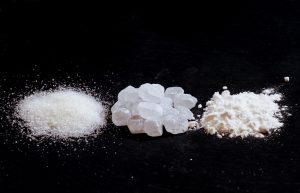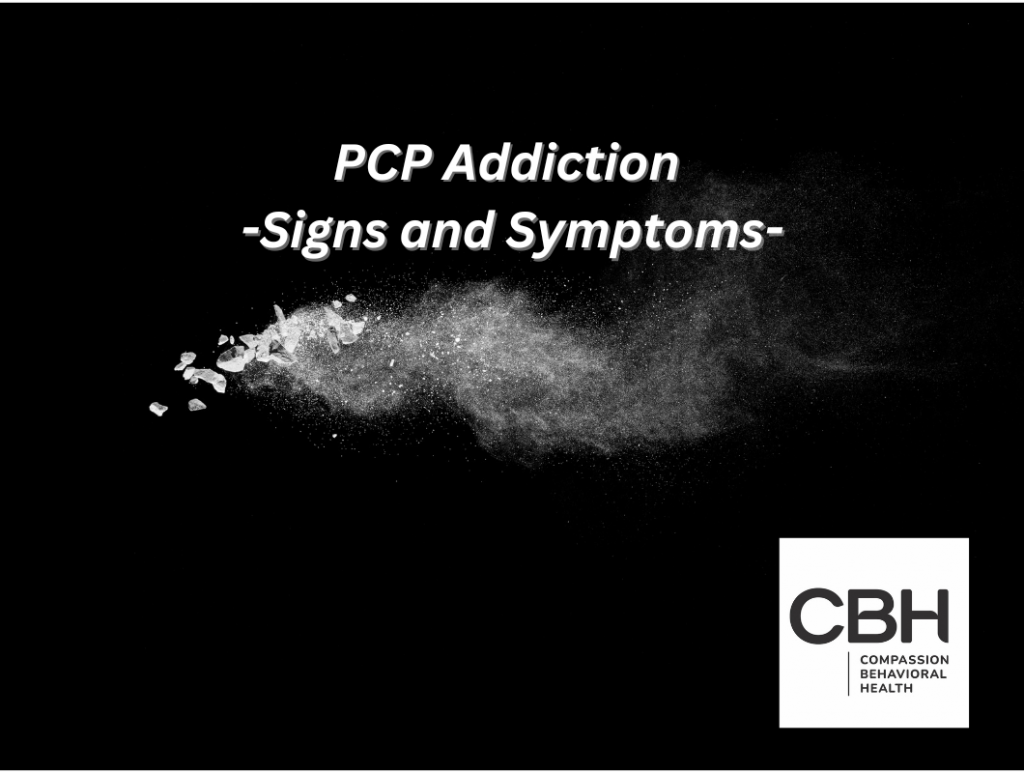PCP, also known as phencyclidine, is a powerful drug that can have devastating effects on a person’s life. Recognizing the signs of PCP addiction is crucial to getting individuals the help they need. This article provides in-depth information on PCP addiction and the various signs that may indicate its presence. By being aware of these signs, we can take the necessary steps to support individuals struggling with PCP addiction and guide them toward recovery.
Understanding PCP and Its Effects
PCP, short for phencyclidine, is a dissociative drug that was initially developed as an intravenous anesthetic. It gained popularity as a recreational drug due to its sedative, anesthetic, and hallucinogenic properties. When ingested, PCP disrupts the normal functioning of the brain, leading to profound effects on perception, cognition, and behavior.
What is PCP?
PCP is a white crystalline powder that can be converted into various forms for consumption. It is commonly sold as a tablet, capsule, liquid, or powder. PCP can be ingested orally, smoked, or injected. The drug takes effect within a few minutes when smoked or injected and approximately 30 minutes when taken orally.

PCP, also known as “angel dust,” belongs to the class of drugs known as hallucinogens. It was first synthesized in the 1950s and was initially used as an anesthetic in surgical procedures. However, due to its unpredictable effects and potential for abuse, PCP was discontinued for medical use in the 1960s.
PCP is a potent drug that acts on the brain’s neurotransmitter systems, particularly the glutamate receptors. It interferes with the normal communication between nerve cells, leading to the disruption of various brain functions. This disruption is responsible for the wide range of effects experienced by PCP users.
Short-term and Long-term Effects of PCP
The effects of PCP vary depending on the dose and the individual’s tolerance. Short-term effects may include distorted sensory perception, hallucinations, delusions, confusion, disorientation, and feelings of detachment from reality. Users may experience enhanced strength, aggressiveness, and a loss of pain sensitivity, making them prone to risky behaviors.
PCP-induced hallucinations can be intense and vivid, often leading to a complete detachment from one’s surroundings. Users may experience a distorted sense of time and space, making it difficult to differentiate between reality and the hallucinatory world created by the drug.
Aside from its hallucinogenic effects, PCP also has sedative and anesthetic properties. This can lead to a state of profound relaxation and detachment from physical sensations. However, these effects can quickly turn into a state of agitation and aggression, especially at higher doses.
Long-term use of PCP can result in severe physical and psychological consequences. Chronic PCP use can lead to memory loss, speech difficulties, depression, anxiety, and impaired judgment. The drug’s impact on the brain can also cause personality changes and difficulty in forming and maintaining relationships.

Studies have shown that prolonged PCP use can lead to structural and functional changes in the brain. These changes can affect various cognitive functions, including memory, attention, and decision-making. Additionally, PCP abuse can increase the risk of developing psychiatric disorders such as schizophrenia and bipolar disorder.
It is important to note that PCP is a highly addictive substance. Regular use can lead to tolerance, dependence, and withdrawal symptoms when attempting to quit. The withdrawal symptoms can include cravings, depression, anxiety, and sleep disturbances.
Overall, PCP is a powerful drug that can have profound effects on the mind and body. Its recreational use poses significant risks to both the individual and society as a whole. Understanding the nature of PCP and its effects is crucial in promoting awareness and preventing the harmful consequences associated with its use.
Identifying Physical Signs of PCP Addiction
Changes in Physical Appearance

Individuals addicted to PCP may exhibit noticeable changes in physical appearance. In some cases, they may experience drastic weight loss due to a loss of appetite and neglect of personal hygiene. This neglect can lead to unkempt hair, dirty and disheveled clothing, and a general disheveled appearance. The lack of proper nutrition and self-care can also result in pale and gaunt skin, making the individual appear frail and unhealthy.
In addition to the changes in weight and hygiene, there are other physical signs that can indicate PCP addiction. Dilated pupils, for example, are a common indicator of PCP use. When under the influence of PCP, the pupils can become significantly larger than normal, giving the person a distinct and noticeable appearance. This dilation can be a result of the drug’s impact on the nervous system, specifically the sympathetic nervous system.
Another physical sign to look out for is flushed skin. PCP use can cause an increase in body temperature, leading to a flushed and reddened complexion. This effect is often accompanied by excessive sweating, as the body tries to regulate its temperature. The combination of flushed skin and sweating can make the individual appear agitated and uncomfortable.
Impaired fine motor skills are also common indicators of PCP use. PCP affects the brain’s ability to transmit signals effectively, leading to difficulties in coordinating movements. This can manifest in unsteady gait, tremors, and clumsiness. The individual may struggle with simple tasks that require precise movements, such as buttoning a shirt or tying shoelaces.
Health Complications Related to PCP Use
Continued PCP use can put individuals at risk of various health complications. One of the most concerning complications is respiratory problems. PCP can cause damage to the respiratory system, leading to breathing difficulties, chronic coughing, and even lung infections. Prolonged PCP use can also result in irreversible lung damage, making it harder for the individual to breathe properly.
Another potential health complication related to PCP use is kidney damage. PCP is processed by the kidneys, and prolonged use can put a significant strain on these organs. This strain can lead to kidney dysfunction, urinary tract infections, and even kidney failure. The individual may experience symptoms such as frequent urination, blood in the urine, and lower back pain.
Cardiovascular issues are also a concern when it comes to PCP use. The drug can cause an increase in heart rate, blood pressure, and body temperature. These physiological changes can put a strain on the cardiovascular system, increasing the risk of heart attacks, strokes, and other cardiovascular events. Individuals who abuse PCP may experience chest pain, irregular heartbeat, and shortness of breath as a result of these complications.
It is important to note that the effects of PCP may even lead to overdose, resulting in severe health consequences. An overdose can cause seizures, loss of consciousness, and even coma. In some cases, it can be fatal, leading to respiratory failure or cardiac arrest. The risk of overdose is particularly high when PCP is combined with other substances, such as alcohol or opioids.
Recognizing Behavioral Changes
Shifts in Mood and Personality

PCP addiction can cause significant mood swings and personality changes. Individuals may become irritable, aggressive, and prone to emotional outbursts. They may also exhibit erratic behavior and have difficulty controlling impulses, leading to strained relationships with loved ones.
Unusual or Risky Behaviors
One of the key signs of PCP addiction is the engagement in unusual or risky behaviors. The drug’s dissociative effects can lead individuals to engage in reckless activities without considering the potential consequences. This can include driving under the influence, engaging in unsafe sexual practices, or participating in criminal activities.
Psychological Indicators of PCP Addiction
Hallucinations and Delusions
PCP’s hallucinogenic properties can cause individuals to experience vivid hallucinations and delusions. They may see or hear things that are not there or hold strong, irrational beliefs. These hallucinations and delusions can significantly impact their behavior and perception of reality.
Cognitive Impairment and Memory Loss
PCP addiction can impair cognitive function and memory. Individuals may struggle with focus, attention span, and problem-solving skills. They may also experience memory gaps and have difficulty recalling recent events or information. These cognitive impairments can have a detrimental impact on their personal and professional lives.
The Impact of PCP Addiction on Personal Life
Strained Relationships and Social Isolation

The consequences of PCP addiction often extend beyond the individual’s own health. Addicted individuals may find it challenging to maintain healthy relationships with family, friends, and colleagues due to changes in their behavior and priorities. They may withdraw from social interactions, leading to isolation and feelings of loneliness.
Professional and Academic Consequences
PCP addiction can have severe repercussions on one’s professional and academic life. The cognitive impairments caused by PCP use can lead to poor job performance, absenteeism, and academic decline. It may also result in disciplinary actions, job loss, or expulsion from educational institutions.
Recognizing the signs of PCP addiction is crucial for early intervention and treatment for recovery. By understanding the physical, behavioral, and psychological indicators, we can identify individuals who are struggling with PCP addiction and provide them with the necessary support and resources to overcome their challenges and regain control of their lives.
Get Help for PCP Addiction
The journey to recovery is never straightforward, and no one should walk it alone. At Compassion Behavioral Health, we understand the intricacies of addiction and the profound effect it has on both the individual and their loved ones. With a team of dedicated professionals and a holistic approach, we aim to address not just the addiction, but the underlying causes and the resulting mental and emotional challenges. Recovery is not just about cessation; it’s about rebuilding, rediscovering, and renewing. Every individual has a unique story and a unique path to healing. If you or a loved one is struggling with PCP addiction or any other substance dependency, Compassion Behavioral Health is here to help, to guide, and most importantly, to understand. Call us at 844-503-0216 or contact us online today.



